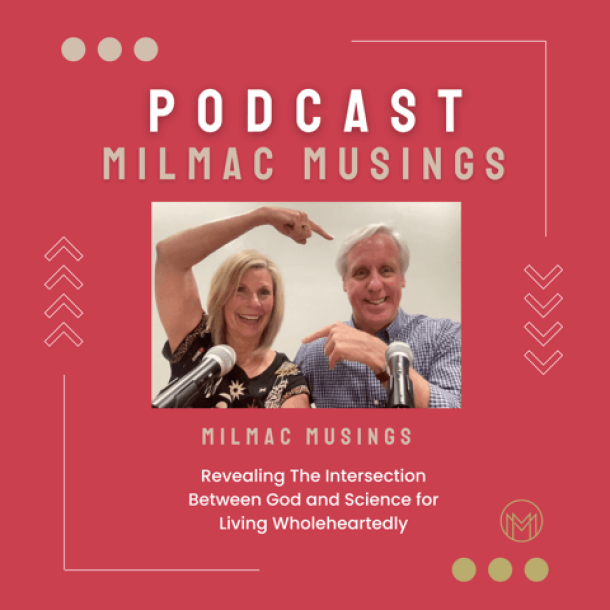With God's help, you can overcome obstacles with grace and unlock a new door to a fulfilling life. God is always with you. When you are in Him, and He is in you, He fills you with the courage to face and overcome obstacles with grace.
In this article, we discuss definitions of grace and courage and the interplay of each, overcoming obstacles with grace, and five practical strategies for facing adversity, challenges, or obstacles. Living with authentic self-love is critical for living wholeheartedly and experiencing healthy relationships.
This article is the eleventh of a blog series offering practical steps rooted in Christ and biblical principles to help you build resilience and trust in God's plan. Following these steps, you'll learn to navigate life's trials with faith and confidence, leaning on Christ's everlasting support.
If you missed it, click to read Understanding Self-Love and How To Attain It, the tenth article in this series.
If you missed it, click to read Developing A Christ-Centered Mindset for A Fulfilling Life, the ninth article in this series.
If you missed it, click to read Embracing God's Promises, the eighth article in this series.
If you missed it, click to read Overcoming Doubt and Fears Through Faith, the seventh article in this series.
If you missed it, click to read Trust: The Foundation of Healthy Relationships Part Two, the sixth article in this series.
If you missed it, click to read Trust: The Foundation of Healthy Relationships, the fifth article in this series.
If you missed it, click to read Trusting God with His Plan After Trauma, the fourth article in this series.
If you missed it, click to read Trusting God, the third article in this series.
If you missed it, click to read Building A Resilient Faith: Jesus Our Model, the second article in this series.
If you missed it, click to read Understanding Biblical Resilience, the first article in this series.
"We may encounter many defeats, but we must not be defeated." -Mary Angelou
Life is sometimes a series of jumping hurdles. And it is. But as believers, you are empowered to leap over them like a gazelle. Below are more tools for overcoming adversity, challenges, and obstacles when they are in your way.
What Do Grace and Courage Mean?
Definition of Grace: Navigating adversities with grace is a deliberate decision we can make. In we can make. It involves acceptance, resilience, seeking meaning, practicing mindfulness, and maintaining inner peace while facing adversity, challenges, and obstacles. Grace consists of embracing the present moment, no matter how challenging, and responding calmly and with poise. It's about showing compassion to yourself and others and finding the strength to move forward with dignity and patience. When you choose to move with grace, you acknowledge your struggles without letting them define you. Instead, you use struggles as opportunities for growth, transformation, and a deeper understanding of yourself and your purpose. Grace allows you to navigate life's obstacles with peace and faith, trusting that every challenge is a step towards greater resilience, wisdom, and purpose.
Definition of Courage: Courage plays a crucial role when facing adversity, challenges, or obstacles by providing the strength to confront them head-on. It empowers you to take action despite fear, uncertainty, and potential failure. Courage allows you to step out of your comfort zone, make difficult decisions, and persevere through tough times. It fosters resilience, helping you to bounce back from setbacks and learn from your experiences. By embracing courage, you can maintain hope and determination, transforming adversity, challenges, and obstacles into opportunities for growth and wisdom.
"Resilience" encapsulates the ability to recover and adapt to adversity, challenges, and obstacles. It signifies the strength to persevere and bounce back from difficult situations, ultimately growing stronger and wiser.
The Interplay Between Grace and Courage: Courage enables us to take bold steps and persevere through hardships, while grace helps us adapt to changing circumstances with flexibility and poise. Together, they build resilience, allowing us to bounce back stronger from adversity.
Two Things To Implement to Overcome Obstacles with Grace
Embrace a Positive Mindset
The Power of Positive Thinking:
In the Developing a Christ-Centered Mindset article, we discussed that merely changing thoughts from negative to positive doesn't have the power you need to renew your mind and live wholeheartedly. It is the Lord who provides the power through the Holy Spirit for you to "think on whatever things are true, whatever things are honorable, whatever things are right, whatever things are pure, whatever things are pleasing, whatever things are commendable, if there is any excellence of character and if anything praiseworthy, think about these things." Philippians 4:8
Mindfulness and Gratitude:
Work on absorbing the truth that the promise is only for today. Living in this truth will help you stay mindful of what is happening now. Practicing present living will help you know what is happening in your mind, body, and environment. Keeping your mind on the present allows you to live in the present. Being present and mindful helps you live gratefully despite your circumstances.
Re-frame Your Challenges as Opportunities:
When you re-frame your mind to believe that your adversity, challenges, or obstacles will help you grow, strengthen you, create more courage, and develop resilience, a thankful heart will grow. Write down the challenges and ask yourself, "How can I re-frame this challenge and see it as an opportunity?" Look up scriptures about your situation and write down the biblical resolution and how to apply it to your circumstances. This exercise helps you discover answers and navigate your circumstances from a new perspective. Your failures or mistakes or the things that happen to you that are out of your control become stepping stones to greater resilience.
Seek Support and Build Community
The Importance of Support Systems: Joining a support group, whether family, friends, or professionals, will help you connect with others, giving you a true sense of belonging. You will gain practical steps for navigating your circumstances from others who have experienced what you are going through. Along the way, you could make some lifetime friends.
Finding and Offering Support:
- Acknowledge to others you need help, communicate your need clearly, and understand that this shows strength, not weakness.
- Contact your current network: friends, family, mentors, or support groups.
- If you need more help, seek professional help through counselors, therapists, or coaches.
To support others, be available, practice active listening, offer practical help, suggest professional help if needed, stay connected by checking in, share any resources you know that could help, and be patient, not pushy. Let them process and move at their own pace.
Community Involvement: Seeking help and supporting others are vital aspects of navigating life's challenges. We create a community of mutual care and resilience by reaching out for support when needed and being there for others.
Five Practical Strategies for Facing Adversity, Challenges, or Obstacles
Set Realistic Goals:
Setting achievable goals to navigate adversity, challenges, and obstacles involves self-reflection to identify your values and long-term vision.
- Break down significant goals into smaller, manageable steps
- Create a timeline
- Assign necessary resources
Monitor your progress regularly, celebrate milestones, and be prepared to adapt your plan. Seek support and maintain a positive Christ-centered outlook to overcome.
Remember, setbacks are growth opportunities.
Practice Healthy Boundaries and Limits:
Boundaries and limits are crucial for maintaining healthy relationships and protecting your well-being. Boundaries allow you to say, "No, I won’t tolerate that. Your behavior has crossed a line." On the other hand, limits let you express, "I can’t do that at this time." Both are essential in creating a safe and respectful environment.
Imagine going to the beach and finding no sand, only the ocean spreading endlessly—without boundaries, there’s chaos. Just as God created boundaries for the oceans and your skin for your body, He offers you the wisdom to establish personal boundaries and limits for your protection.
Empowerment, strength, and an understanding of your value and worth come through your relationship with Christ and the guidance of the Holy Spirit, who helps you implement boundaries. Setting and maintaining boundaries is an ongoing process that helps you grow and stay safe.
Our temperance also plays a role in how we establish boundaries and limits. Some people are naturally more vulnerable to overstepping or having their boundaries crossed. They may struggle to say no, even when necessary. Unfortunately, this can lead to adverse outcomes when boundaries are not respected.
By understanding and implementing boundaries and limits, you protect yourself and cultivate healthier, more respectful relationships.
Foster Your Problem-Solving Skills:
To foster your problem-solving skills, start by practicing critical thinking. This practice involves analyzing problems from multiple perspectives, breaking them into smaller components, and questioning assumptions to find innovative solutions. Next, embrace a collaborative approach by seeking diverse input and working with others to brainstorm ideas, as collective insights often lead to more effective problem-solving. Lastly, develop a growth mindset by viewing adversity, challenges, or obstacles as opportunities to learn and grow. Embrace failures as valuable learning experiences, and persistently refine your strategies based on reflection, feedback, and new information.
Manage Your Stress: Effectively managing stress and maintaining emotional balance is crucial for well-being. Prioritize self-care through regular physical activity. Exercise releases endorphins that improve your mood and reduce stress. Meditating on God's Word helps calm the mind and increase self-awareness. Practice breathing in His word and releasing the stress by breathing it out. As discussed earlier, fostering healthy social connections is equally important in managing stress.
Weigh the Consequences Before Responding: Every thought, word, and action has a consequence. Before responding:
- Pray.
- Read God's word on that topic.
- Talk to your safe community about what you might do.
Once others supporting you give feedback, run that guidance through the Word of God and speak to the Holy Spirit about it in prayer.
Heavenly Father, is this what you want for me?
Grace and courage are essential in overcoming adversity, challenges, and obstacles. Embracing grace enables us to navigate adversities with acceptance and mindfulness, while courage empowers us to confront challenges head-on. We can cultivate resilience and inner strength by implementing positive mindset practices, re-framing challenges as opportunities, seeking support, and setting realistic goals. Together, grace and courage help us survive and thrive in the face of adversity, challenges, or obstacles, allowing us to emerge strengthened and more capable of facing whatever life may bring.
In our next article we will address Finding Strength in Community.







